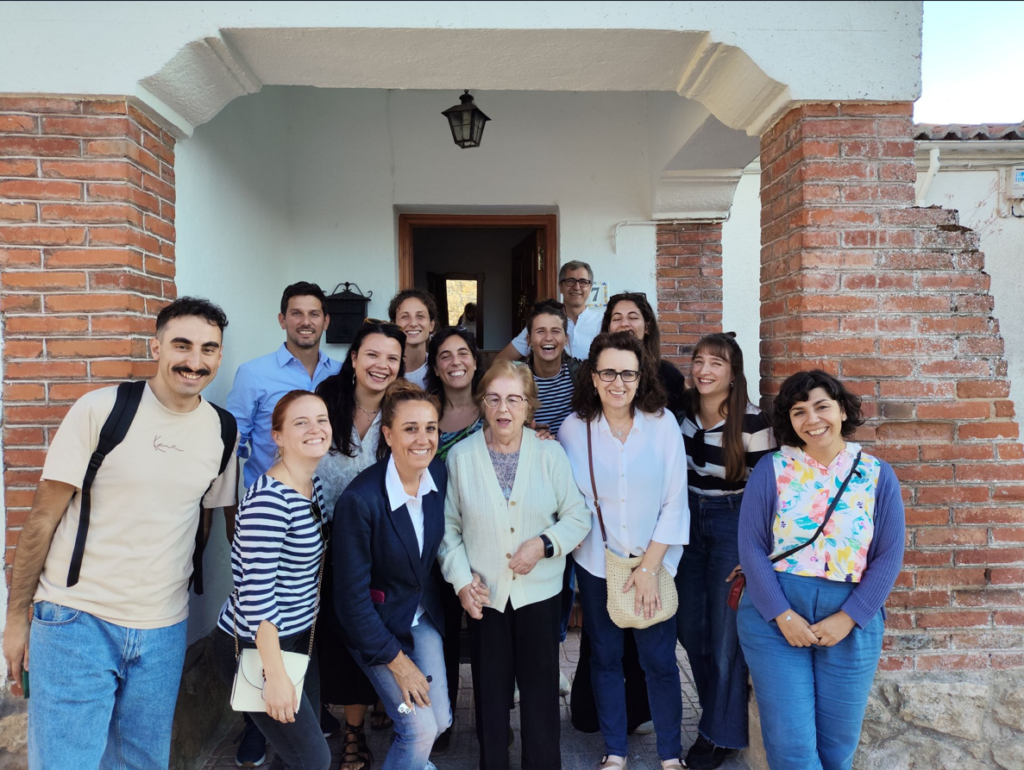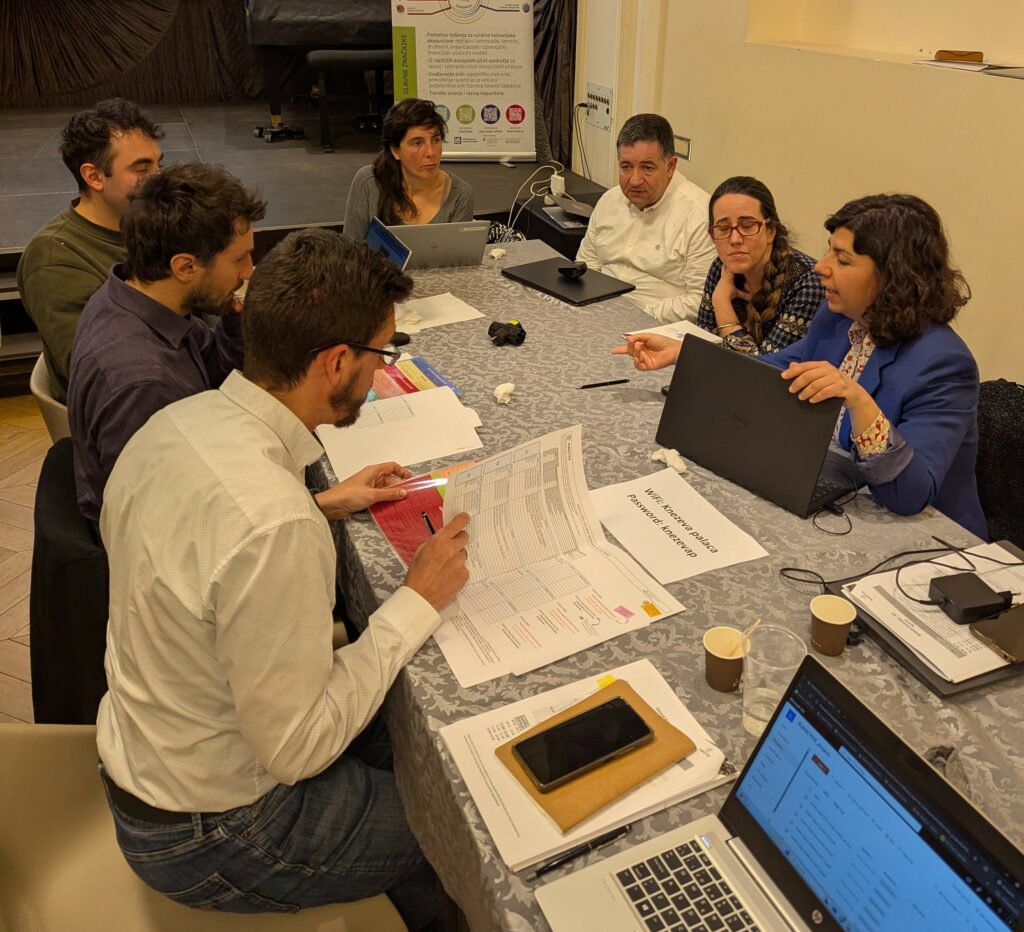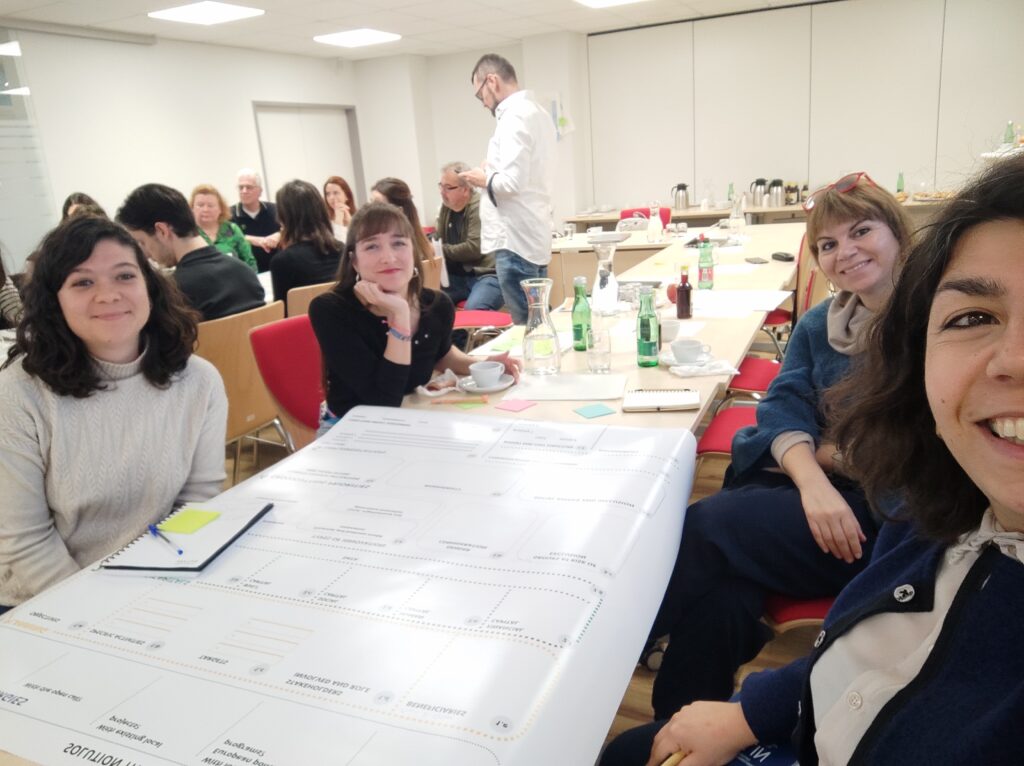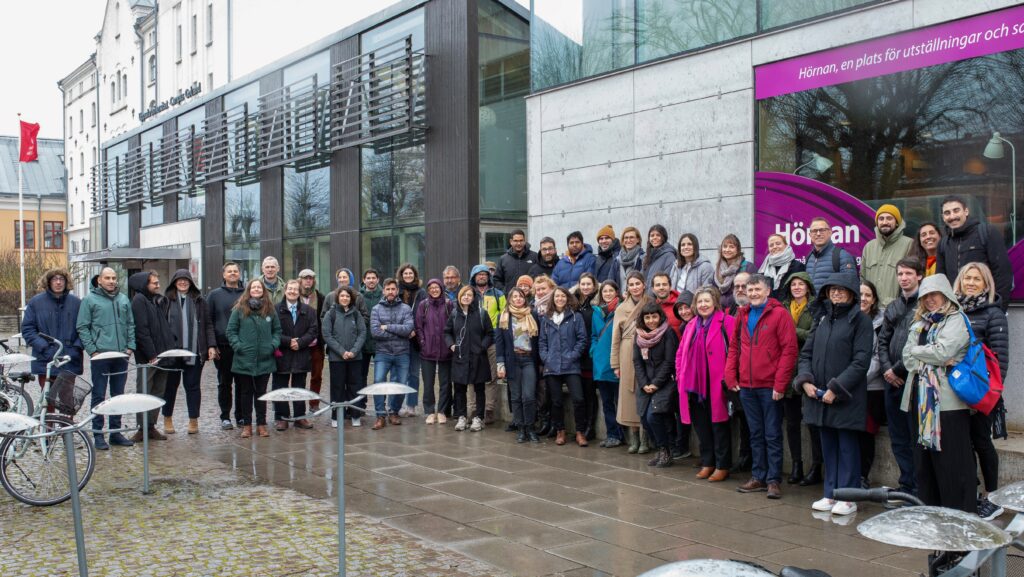
Supporting community-led and place-based innovations in rural areas
The University of Pisa is a technical partner in the Horizon Europe RURACTIVE Project
Launched in September 2023, coordinated by the Alma Mater Studiorum – University of Bologna (UNIBO) and involving 28 partners, the Horizon Europe RURACTIVE project, in line with the Long-term vision for rural areas, aims to make rural communities stronger and healthier, connected, more resilient and prosperous, by developing smart, community-led, tailor-made, place-based and inclusive solutions in rural areas.

The University of Pisa is involved in the project as a technical partner, contributing to the project mainly through a research-driven approach. The PAGE members representing UNIPI within RURACTIVE are Dr. Sabrina Tomasi, directly involved in the project’s activities; Prof. Alessio Cavicchi and Prof. Gianluca Brunori, with a supervising role.
A video dedicated to RURACTIVE has just been released. Watch it to know more about the project!
Multi-Actor Rural Innovation Ecosystems (RIEs) in 12 pilot areas, called Dynamos have been established through RURACTIVE.
The results of the process are conveyed in a Local Action Plan for each Dynamo and implemented place-based with the RIEs actors’ direct engagement and with the support of a Local Community Trainer. Another one or two challenges are implemented through the involvement of external experts selected through a Cascade Funding Open Call.
A four-step methodology developed by UNIBO enabled the co-creation of innovation processes to identify key relevant stakeholders taking part in the Local Task Force and the RIE. The methodology accompanies Dynamos in identifying key local policies, challenges, selecting them and implementing related solutions in a participatory manner, by also providing them with digital skills and support tools to make informed decisions and monitor the advancements of their solutions through measurable indicators (RURACTIVE Digital Hub).
Challenges and solutions focus on one or more of the 6 rural development drivers (RDDs), and 3 cross-cutting priorities (CCPs).
Rural Development Drivers:
- Sustainable agri-food systems and ecosystem management;
- Nature-based and cultural tourism
- Culture and Cultural Innovation
- Sustainable multimodal mobility
- Energy transition and climate neutrality
- Local services, health and wellbeing
Cross-cutting priorities:
- Social justice and inclusion
- Climate change mitigation and adaptation
- Biodiversity
RURACTIVE considers 4 types of innovations: digital and technological; technical, social, organisational and governance-related; financial and business model-related ones.

RURACTIVE pursues inclusion and empowerment of all members of rural communities, with special attention to groups at risk of exclusion, such as young, elderly, people with disabilities, migrants and minorities, long-term unemployed people, people from the LGBTQIA+ community and focuses particular attention on women-led innovations.

Exploring healthcare-based solutions for elderly people from the Bermillo de Sayago (Zamora Province, Spain) local community.
UNIPI’s contribution to RURACTIVE started from its support in the elaboration of the project’s conceptual framework, especially in the conceptualisation of some of the RDDs, such as those related to sustainable agrifood systems, tourism and culture.
A huge effort has been put by UNIPI into populating the so-called Solution Catalogue: a big database of innovative solutions for rural areas aiming to inspire Dynamos and RIEs for the development of their solutions, and a basis for the creation of a Data Driven Decision Support Tool, aiming to provide tailor-made recommendations and suggestions to foster rural innovations.
In this task, UNIPI selected and entered in the RURACTIVE Catalogue relevant solutions from the former DESIRA Horizon project and some other first-hand known solutions. Dr. Fabio Lepore, who had previously worked in DESIRA, supported the accomplishment of this task.
Following, the ongoing step of analysis of the Solutions has involved UNIPI, which is leading the analysis of the Culture and Cultural innovation RDD and contributing to Sustainable agri-food and ecosystem management, Nature-based and cultural tourism ones, and Biodiversity and Social Justice and Inclusion CCPs.
The task members discussed the progress of this activity in the last project meeting in Zadar, on April 9th 2025, in a dedicated workshop organised by the WP2 leader, James Hutton Institute (JHI). The partners shared some research questions emerging from the analysis and started planning scientific publications related to them.
UNIPI is also contributing to the capacity-building and knowledge exchange initiatives of the project.

Moreover, since October 2024, Sabrina Tomasi has been directly engaged as a mentor of two Dynamos – Zagori, Greece and Andalucía, Spain– supporting them in the application of the RIE activation methodology, and providing key suggestion and recommendations for the implementation of the Local Workshops 2, 3 and 4, towards the participatory elaboration of the Local Action Plans.

On the left: Vera Nikolova (Balam) and Sara Hernandéz (Bioazul) from Dynamo 5 – Andalucía; on the right, Sabrina Tomasi (UNIPI) and Panagiota Koutsoukou (Ecomuseum Zagori) from Dynamo 6 – Zagori, during a mentoring activity.
One of the next steps involves giving value to the project achievements so far and further reflecting on its scientific contribution, as well as reinforcing the connections with the Horizon Europe twin project FUTURAL, involving Dr. Carlo Giua and Dr. Brigida Marovelli from the PAGE group.
Indeed, UNIPI, together with UNIBO, and JHI, in collaboration with the Thünen-Institute for Regional Development, will host a working group at the 30th European Society of Rural Sociology Congress (ESRS) entitled: “Rural Areas as Innovation Ecosystems: Transformative Strategies and Social Innovations”, in Riga, Latvia, from 7-11 of July, 2025.


